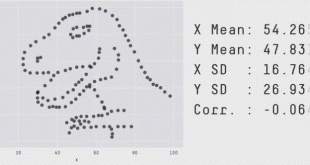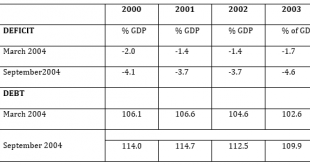Guest post by Jeff Mosenkis of Innovations for Poverty Action. North Korea’s surprising, lucrative relationship with Africa (via Kim Yi Dionne) In an inexplicable lapse some congressional staffer has surely been punished for, the House Foreign Affairs Committee invited three eminently qualified women to testify about women’s empowerment in the developing world. Even more encouraging was that the hearing was titled “Beyond Microfinance.” Mary Ellen Iskenderian, head of the financial...
Read More »IPA’s weekly links
Guest post by Jeff Mosenkis of Innovations for Poverty Action. “Why Poverty is Like a Disease” looks at epigenetics and how poverty interacts with one’s own biological development. It’s well written, by someone who describes what it was like growing up poor and how hard it was to escape. (h/t David Batcheck) Our World in Data asks “How Much Will it Cost to Mitigate Climate Change?” Some nice news via Dina Pomeranz: globally deaths from diarrheal disease fell by a third between 2005 and...
Read More »IPA’s weekly links
Guest post by Jeff Mosenkis of Innovations for Poverty Action. The datasets above all have the same means, SD, and correlations explain Justin Matejka & George Fitzmaurice of Autodesk in a modern update of Anscombe’s Quartet. But the lesson is the same – always plot your stuff. (h/t everybody) Jobs postings: Summer jobs with Busara Center, full-year with Michael Clemens, and many at the IPA/J-PAL (and several other orgs) jobs portal. Podcasts: Tyler Cowen talks with Cardiff Garcia on FT...
Read More »Causal Friday: Is Change Really A Good Thing, Statistically Speaking?
Steve Levitt, in addition to gaining fame (at least at an economist level, not a Justin Bieber level) for writing Freakonomics, has made a career teasing cause and effect out of (largely) observational data. (By “observational data,” I mean that he doesn’t explicitly run controlled experiments in a lot of cases and just looks at the world as it transpired naturally instead.) Observational data presents an interesting challenge because people usually make choices in life rather than being...
Read More »Lies, damned lies, and Greek statistics
Guest post by Sigrún DavídsdóttirThe word “trust” has been mentioned time and again in reports on the tortuous negotiations on Greece. One reason is the persistent deceit in reporting on debt and deficit statistics, including lying about an off market swap with Goldman Sachs: not a one-off deceit but a political interference through concerted action among several public institutions for more then ten years.As late as in the July 12 Euro Summit statement "safeguarding of the full legal...
Read More » Heterodox
Heterodox



